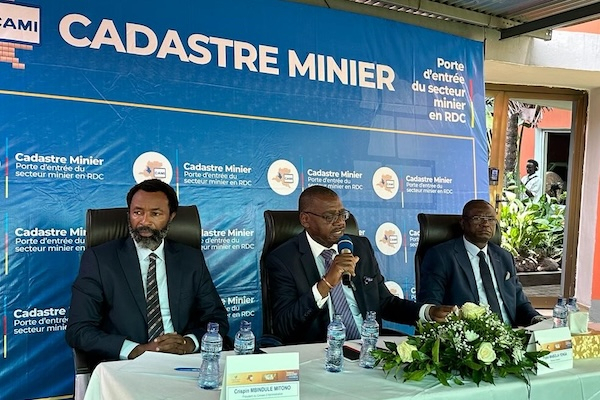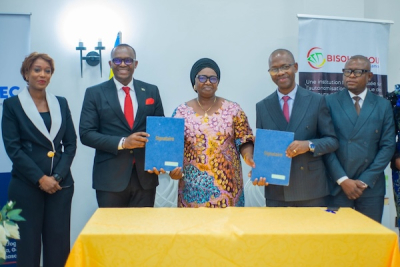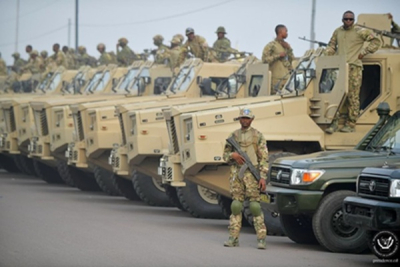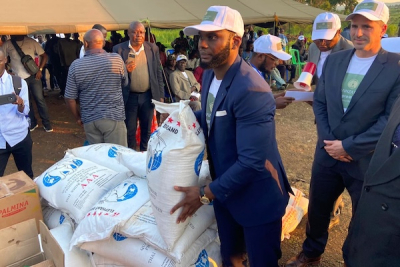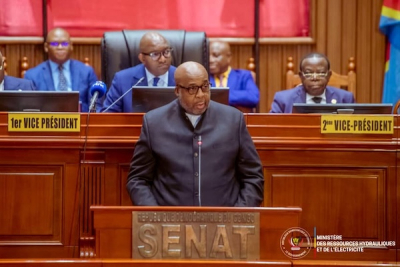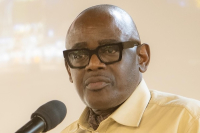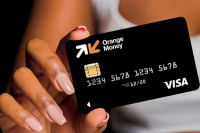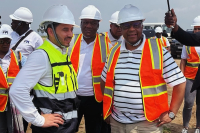
News (638)
The Mining Registry (CAMI) of the Democratic Republic of Congo has suspended new applications for mining and quarry exploration rights, effective Dec. 17, 2025. The decision was announced in a statement issued on Dec. 15, 2025. The suspension will remain in effect until further notice, as no reopening date has been set.
CAMI said the measure does not affect operations under existing rights. Applications to convert or renew mining rights, as well as registrations of assignments, leases, options, and other related transactions, will continue to be processed.
According to the registry, the decision forms part of an effort to clean up the mining cadastre. The aim is to improve the accuracy and management of the cadastral system.
The work builds on measures launched last July. A report published in August 2025 said those measures enabled the Congolese state to recover 594 mining and quarry titles. These titles covered 37,253 mining squares, representing a total area of 31,648 square kilometers, larger than Belgium.
The report also cited the administrative regularization of 210 mining rights that had been under prolonged force majeure, covering 18,709 mining squares. These titles were reclassified as active, restoring the fiscal, social, and technical obligations of the companies concerned.
Ronsard Luabeya
Rawbank, the largest bank in the Democratic Republic of Congo, and global payments company Visa on Dec. 16 renewed their partnership for a further five years, the two groups said in a joint statement issued in Kinshasa.
The agreement marks a new phase in a collaboration that began more than 15 years ago. Under the renewed partnership, the two companies plan to expand payment and financial management solutions for small and medium-sized enterprises, including expense management tools designed to improve SMEs’ financial management. The agreement also covers the rollout of tailored products for affluent clients and the expansion of cross-border payment solutions to support international trade.
On the merchant side, Rawbank and Visa plan to broaden payment acceptance options, including physical point-of-sale terminals, online payment solutions and remote payment tools. The move is aimed at supporting the growth of e-commerce and strengthening transaction security.
The partners also plan to launch companion cards and virtual cards in collaboration with telecommunications operators, to meet growing mobile usage and offer greater flexibility to individuals and businesses.
In addition, the two companies announced joint initiatives to promote financial inclusion, including the Visa Academia Card and future programmes targeting young people, women and entrepreneurs. These initiatives will focus on financial education and improving access to formal banking services.
Rawbank also plans to promote payment tokenization in the DRC, a technology designed to enhance transaction security and encourage the adoption of innovative digital payment solutions. The bank said the initiative reflects a shared objective to strengthen trust in digital payments and support the transition toward a more connected economy.
Mustafa Rawji, chief executive officer of Rawbank, said the partnership aims to broaden the range of modern and secure payment solutions tailored to the needs of Congolese consumers and businesses.
Sophie Kafuti, Visa’s country manager for the DRC, said the agreement seeks to support the modernization of payment acceptance, the expansion of e-commerce and the rollout of mobile solutions, with the goal of widening access to digital financial services and strengthening financial inclusion.
Ronsard Luabeya
The Congo Entrepreneurship Guarantee Fund (Fonds de Garantie de l’Entrepreneuriat au Congo, FOGEC) signed a memorandum of understanding with microfinance institution Bisou-Bisou on Dec. 9, 2025, aimed at facilitating access to credit for members of the National Network of Rural Women’s Associations (RENAFER).
Under the agreement, the two parties plan to set up a guarantee product known as “Kolisa Libenga”, designed to make it easier for rural women to access loans provided by Bisou-Bisou.
FOGEC Director General Laurent Munzemba said the fund intends to allocate more than $2 million to the project. The guarantee mechanism is expected to enable RENAFER members to obtain individual loans of up to $5,000 from Bisou-Bisou. No timeline has yet been announced for the signing of a final agreement or the launch of the scheme.
FOGEC said the partnership reflects its strategy of expanding access to finance beyond the traditional banking system and supporting economic participants often excluded from conventional financing channels, particularly those operating in the informal sector. Munzemba added that the fund plans to scale up similar partnerships to reach other categories of entrepreneurs in both urban and rural areas.
RENAFER, the programme’s beneficiary, is a non-governmental development organisation established in February 2020. According to information published on its website, it serves as a national platform for information and training for rural women, with a focus on sustainable agriculture, addressing constraints on production and promoting financial empowerment. The network says it has a presence in 12 of the country’s 26 provinces, including Kinshasa, Kongo Central, Equateur, Maniema, South Kivu, North Kivu, Tshopo, Haut-Katanga, Kasai Central, Kasai Oriental, Kwilu and Lualaba.
By contrast, Bisou-Bisou, FOGEC’s operational partner in the programme, appears to operate mainly in Kinshasa and surrounding areas, based on publicly available information. This raises questions about how RENAFER members in other provinces will be able to effectively access the scheme.
However, during the presentation of its Pillar 3 report for the 2024 financial year in May 2025, Bisou-Bisou said it had entered into a partnership with Vodacash, the fintech arm of Vodacom that operates the M-Pesa mobile money service. The partnership aims to expand the institution’s nationwide reach while keeping operating costs under control. Bisou-Bisou cited these costs as one of the factors behind its net loss of 607.2 million Congolese francs in 2024, equivalent to about $213,000 at the average exchange rate for the year.
Timothée Manoke
The Council of Ministers adopted a draft ordinance establishing the Support and Development Fund for the Armed Forces of the Democratic Republic of Congo (FSD-FARDC) at its 70th ordinary meeting on Friday, Dec. 12, 2025.
Presented by Guy Kabombo Mwadiamvita, Deputy Prime Minister and Minister of National Defence and Veterans, the text sets out the structure and operating framework of the new financing mechanism for military programming, against a security backdrop marked by persistent armed conflict, particularly in the country’s east.
Under the ordinance, the FSD-FARDC’s primary mandate will be to finance military programmes by mobilising resources linked to the “war effort”. These will include contributions from the central government, provinces, decentralised territorial entities, public and private companies, as well as donors, partners and other individuals or legal entities under public or private law.
The fund will also be tasked with negotiating levies on certain revenue-generating activities of the central government related to national defence. It will oversee the monitoring and collection of resources allocated to the defence sector and play a role in determining contributions предусмотрed in partnership agreements. The framework also includes public awareness efforts aimed at mobilising all segments of society around the war effort.
The initiative builds on measures taken by the authorities since the start of 2025 to strengthen material and financial support for the Armed Forces of the Democratic Republic of Congo (FARDC). In the first months of the year, the head of state called for a nationwide mobilisation around the war effort and urged the government to rationalise certain public expenditures in order to create additional fiscal space for defence.
The creation of the FSD-FARDC comes as the security situation in eastern DRC continues to deteriorate, weighing on public finances by reducing revenue and increasing security spending at the expense of other priorities, including salary payments. In response to renewed offensives by AFC/M23 rebels and ongoing instability, the authorities have stepped up measures to reinforce the defence effort, notably by requesting an advance on budget support from the International Monetary Fund and adjusting revenue and expenditure policies to contain the conflict-related budget deficit.
At the end of November, the Council of the European Union approved a 10 million euro ($11.52 million at the current exchange rate) assistance package for the FARDC under the European Peace Facility. The support is intended to supply non-lethal military equipment tailored to the operational needs of the Congolese armed forces.
The government says the operationalisation of the FSD-FARDC is intended to provide the armed forces with equipment suited to current and emerging threats, while strengthening their functional and operational capabilities.
Boaz Kabeya
The Swiss group Mole, which specializes in agricultural commodity trading, launched a preparatory phase on Dec. 11, 2025, to secure land for the construction of the Mbanza-Ngungu agro-industrial park in Kongo Central. The project spans more than 105,000 hectares, including 85,000 hectares of arable land, and represents an estimated investment of $1 billion.
For the developers, land acquisition is the most sensitive stage of the project. Although the Democratic Republic of Congo has more than 80 million hectares of arable land, less than 10% of which is currently exploited, access to land remains one of the main constraints on agro-industrial development. Key challenges include an unreliable land registry, customary and community disputes, legal inconsistencies, risks of land grabbing, lengthy and costly procedures, and weak institutional governance.
A launch meeting attended by customary authorities, civil society representatives, and technical and financial partners was held to inform local communities, particularly land rights holders, about the process. During the meeting, the Swiss group sought to reassure stakeholders. “No land will be used without the approval of its owner,” a company representative said.
Rights holders will be asked to sign a letter of commitment defining a non-binding framework for cooperation. The document authorizes technical studies, mapping, and land inventories, while guaranteeing communities the right to retain control over land-use decisions until a final sales contract is signed. The process also includes the establishment of a grievance management committee, negotiations on acquisition terms, and the eventual signing of a contract.
Mole Group has also committed to relocating people currently living on the site to new residential areas, integrating them into partner agricultural cooperatives, and granting them priority access to employment opportunities. “The aim is to ensure that everyone is fairly compensated and can benefit from the project’s returns,” said CEO Gandi Mole.
Under the public-private partnership agreement signed last October with the Ministry of Agriculture, land constitutes part of the state’s contribution to the project. “But to avoid any conflict, we wanted to proceed differently by involving local communities from the outset,” a source within the Swiss company said. The developers aim to secure 80% of the required land within six to eight months, a move intended to facilitate the government’s role in the process.
Once fully operational, the agro-industrial park is expected to produce 700,000 tonnes of finished products annually, including cassava, maize, and wheat flours, as well as sugar and rice. The project is projected to generate more than 20,000 direct and indirect jobs.
In addition to state support, the project is backed by international partners, notably Switzerland-based Bühler, which specializes in agri-food equipment and advanced materials, and Belgium’s De Smet Engineers & Contractors, known for its expertise in delivering turnkey agro-industrial plants.
Ronsard Luabeya
Democratic Republic of Congo's Hydropower Minister Aimé Sakombi Molendo outlined plans to electrify the southwestern Kwango province, as the government faces public pressure to deliver on energy promises.
The minister presented the national electricity policy to the Senate on Dec. 14, the ministry said in a post on X. The strategy focuses on new hydropower infrastructure. The plan includes drawing power from the Bukangalonzo substation to supply the city of Kenge. It also involves building the 63 MW Mafiji hydropower plant to serve several territories, with technical studies currently underway, the ministry said.
A 3-5 MW hydropower plant at Kingambo is planned to electrify Feshi territory. For Popokabaka, a local project will install a 300 kWp solar mini-plant. Molendo cited ongoing projects, including a separate 300 kWp solar mini-plant and distribution network for Kasongo-Lunda territory. The National Agency for Electrification and Energy Services in Rural and Peri-Urban Areas (ANSER) is implementing the project, which is 90% complete with some equipment already on site.
However, local media have reported that work has been stalled for months. Residents of Kasongo-Lunda protested on Dec. 1 to demand its resumption. The minister also announced a project supported by the Korea International Cooperation Agency (KOICA) for a 500 kWp solar mini-plant to power Kenge General Hospital and nearby households. Work is set to begin in early 2026 following a memorandum of understanding between the ministry and KOICA.
Ronsard Luabeya
The government of the Democratic Republic of Congo has reminded mining companies operating in the southeastern provinces of Haut-Katanga and Lualaba of their obligation to comply with new rules governing fuel use in the sector.
In a letter dated December 10, 2025, and signed by the Ministers of Hydrocarbons, Acacia Bandubola Mbongo, and Mines, Louis Watum Kabamba, the authorities said the reminder followed repeated refusals by several mining operators to grant access to their sites to inspectors from the Petroleum Product Marking Brigade.
According to the letter, the inspectors were seeking to verify fuel stocks in order to ensure that state-subsidized petroleum products intended for household consumption were not being diverted for industrial use at mining sites.
Under Article 22 of the 2025 Finance Law, fuels intended for land and aviation use in mining activities, including gasoline, kerosene, diesel, fuel oil, lamp oil and liquefied petroleum gas, or supplied to mining companies and their subcontractors, are excluded from all public subsidies. They are also no longer eligible for exemptions from import duties and taxes, notably customs duties and value-added tax.
To ensure enforcement of the measure, mining companies are now required to source their fuel supplies under customs supervision and to use products subject to specific molecular marking. This marking allows subsidized fuels sold at service stations to be clearly distinguished from fuels imported for industrial use.
Since the measure took effect in August, the Directorate General of Customs and Excise has suspected certain mining operators of attempting to circumvent the system. As a result, unannounced inspections were launched by the Petroleum Product Marking Brigade. However, between September 7 and 12, several inspection teams were denied access to fuel storage facilities at some mining sites in Lualaba province.
These incidents prompted the ministers to formally remind mining companies of their obligations and to call for full cooperation with inspection authorities.
In the letter, the ministers said that inspections by the Molecular Marking Brigade will now be conducted jointly with administrative checks by the hydrocarbons authorities. These inspections will focus in particular on installed fuel storage capacity, monthly fuel import and consumption volumes, the availability of customs declarations, and the validity of authorizations covering fuel importation, transport and storage for self-consumption.
According to Deputy Prime Minister in charge of the National Economy Daniel Mukoko Samba, the reform has already had a significant impact on public revenue. Fuel imports generated more than 63 billion Congolese francs, or about $22 million, in August 2025, compared with just 4 billion francs, or roughly $1.5 million, the previous month, representing a more than fifteen-fold increase.
Boaz Kabeya
Orange Money Group plans to roll out virtual Visa cards across Africa and the Middle East, including the Democratic Republic of Congo (DRC). In a joint statement, Orange and Visa, a global leader in digital payments, said they had signed an agreement to support the expansion.
The virtual Visa card will be accessible via the Maxit application, which currently has 45 million active customers. Users will be able to instantly generate a rechargeable card from their Orange Money account, usable for online payments on local and international websites. A physical version of the card is also planned and will be made available later at authorized Orange Money points of sale.
In the DRC, Orange Money had already launched an Orange Money Visa card in June 2021 in partnership with UBA. Linked to the Orange Money account, it allowed funds to move between the card and the user’s mobile wallet. It remains unclear whether the initiative gained traction, but the current project builds on similar rollouts in Botswana, Madagascar, Jordan, and Ivory Coast. The goal is to “provide millions of users with a simple, secure, and internationally recognized payment solution.”
According to Thierry Millet, CEO of Orange Money Group, the launch of virtual cards for international payments marks the first phase of a broader agreement designed to expand Orange Money’s acceptance on e-commerce platforms and at local merchants.
The partnership comes as Visa strengthens its presence in the DRC through several collaborations with local banks and fintech companies. Last September, Visa signed an agreement with Onafriq, a pan-African digital payments network, to interconnect VisaPay with the country’s main mobile money wallets, including M-Pesa, Airtel Money, and Orange Money. The interoperability enables Visa accounts to be funded directly from mobile money wallets and facilitates electronic payments.
In the DRC, the value of digital transactions is expected to reach $3.85 billion in 2025, driven by an estimated average annual growth rate of 19%, according to the GSMA. Visa aims to capture part of this growth through the gradual rollout of its solutions, including the VisaPay application launched last September.
The Congolese mobile money market continues to grow strongly. According to data from the Regulatory Authority for Post and Telecommunications of Congo (ARPTC), Orange Money accounted for 6.611 million active accounts in the second quarter, out of a total of 31.16 million, representing a 19.3% increase from the previous quarter. The operator held a 21.22% market share, behind Vodacom’s M-Pesa (49.37%), Airtel Money (29.26%), and Africell (0.15%).
Ronsard Luabeya
With around two weeks remaining in 2025, the Democratic Republic of Congo is still piloting a new cobalt export procedure under its quota system. Many mining companies now say they will be unable to use their full annual allocations and are questioning what will happen to any unused quotas.
Under an Oct. 10, 2025 decision by the board of the Regulatory and Control Authority for Strategic Mineral Substances Markets (ARECOMS), which set the conditions for obtaining, allocating, and executing cobalt export quotas, base quotas per operator are neither transferable nor carried over into a future period. The decision states that any monthly export quota not used by the last day of the month in question is considered lost and automatically reallocated to ARECOMS’ annual strategic quota.
The decision includes an exception for this year. Monthly quotas per operator are exceptionally cumulative until Dec. 31, 2025, but no carryover from one year to the next is permitted. If applied strictly, companies unable to export their full 2025 quotas would forfeit them. Industry representatives say this would be unfair, arguing that the delays are not the operators’ fault.
Asked to comment, ARECOMS told Bloomberg that quotas from the last quarter would not be lost by mining companies and that it was examining all implementation options to limit the impact. The U.S. media also said DRC authorities had allowed producers to retain their 2025 quotas. However, as of the end of last week, several industry players said they had received no official notification to that effect.
Cobalt exports were due to resume on Oct. 16 but remained blocked for more than a month due to the lack of formal implementing rules required under ARECOMS directives. The interministerial Mines and Finance circular setting out the practical arrangements for cobalt exports was published only on Dec. 2. According to the Mining Chamber of the Federation of Enterprises of Congo (FEC), the document does not address concerns raised by cobalt exporters.
Authorities have since launched a testing phase, which began last week with a small shipment of cobalt belonging to Glencore, the owner of Kamoto Copper Company (KCC) and Mutanda Mining (MUMI) in Greater Katanga. “All means are being deployed to finalize the testing phase in the coming days, which will mark the resumption of cobalt exports from the DRC,” ARECOMS told Bloomberg.
Operators hope that once this phase is completed, the regulator will agree to talks to clarify ambiguities in the new system. According to industry sources, as of the end of last week, Mines Minister Louis Watum Kabamba had not responded to correspondence sent by the Mining Chamber on Dec. 4 requesting a working session under the consultation mechanism established in October.
For the fourth quarter of 2025, ARECOMS authorized the export of 18,125 tonnes of cobalt. CMOC and Glencore hold 58% of these volumes, with allocations of 6,500 tonnes and 3,925 tonnes respectively. Annual production is expected to reach nearly 200,000 tonnes.
Pierre Mukoko & Ronsard Luabeya
The Democratic Republic of Congo’s Industrial Promotion Fund (FPI) said ARISE Integrated Industrial Platforms (ARISE IIP) has asked it to take equity stakes in special economic zones developed by the firm in the country.
ARISE IIP is seeking to partner with the FPI on three SEZ projects. The first is the Kin-Malebo Special Economic Zone, where ARISE IIP holds a 60% stake and the Congolese state owns the remaining 40%. FPI Director General Hervé-Claude Ntumba Batukonke visited the site on Dec. 6, 2025. The project is currently 80% complete.
The second project is the Musompo Special Economic Zone in Kolwezi. When construction was launched on March 26, 2025, the Lualaba provincial government presented ARISE IIP as a partner for the zone, which is designed to produce battery precursors and batteries and could also include electric-vehicle assembly using locally sourced raw materials. No further details were disclosed.
The third project is the Banana Special Economic Zone, which aims to support the development of a deep-water port.
The FPI described the proposal as a “major strategic opportunity,” noting that it aligns with its Three-Year Action Plan for 2026-2028, adopted last September. The plan identifies the diversification of funding sources as one of the fund’s five priorities, including the use of innovative mechanisms such as equity participation and project co-financing. The objective is to expand the fund’s impact beyond traditional industrial project financing.
To date, the FPI has mainly focused on financing industrial projects, promoting local industry, supporting research and innovation, and developing economic infrastructure. Between April 2024 and May 2025, the institution allocated nearly $6.5 million in credit to six projects across several sectors, including pharmaceuticals, furniture, beverages, soaps and printing, according to data published on its website.
Timothée Manoke
More...
The first phase of development at the Kin-Malebo Special Economic Zone (SEZ) is nearing completion, with 80% of construction work finished, the Industrial Promotion Fund (FPI) said.
The update came after a site visit on December 6, 2025, by FPI Director General Hervé-Claude Ntumba Batukonke. The project is located in Kinshasa’s N’Sele municipality, about 40 km from the city centre and 10 km from Ndjili International Airport.
ARISE Integrated Industrial Platforms (ARISE IIP) announced a public-private partnership with the Democratic Republic of Congo for the development of the SEZ in September 2022. At the time, the company said the project would involve an estimated $200 million investment, with a 60% stake held by ARISE and 40% by the state, and would generate around 20,000 direct and indirect jobs. The zone was also expected to attract about $850 million in private investment across multiple sectors.
Figures for the site’s size have varied since the project’s launch. ARISE initially put the area at 514 hectares at the time of the partnership agreement, while the Congolese Agency for Major Works (ACGT) refers to 497 hectares. ARISE’s official platform now lists 528 hectares for the first phase.
ARISE said the initial phase is expected to include wood processing, poultry production and beverage manufacturing for the local market, as well as companies operating in pharmaceuticals, plastic recycling, household appliances, electric vehicles and other processing industries.
In July 2025, the Ministry of Industry said the zone would be inaugurated before the end of the year, adding that several companies had already secured plots within the industrial area.
ARISE had initially planned to begin construction in October 2022, one month after signing the partnership, with operations starting in October 2023. However, the ACGT said site development work did not begin until April 2024. No explanation was given for the delay.
ARISE IIP describes itself as a pan-African developer and operator of industrial parks and currently manages 12 special economic zones in countries including Rwanda, Gabon, Togo and Benin.
Timothée Manoke
The African Development Bank (AfDB) on Dec. 8 approved $160 million in financing to improve transport and logistics links around the Ngandajika Agro-Industrial Park (PAIN) in Lomami province, in the Democratic Republic of Congo.
The project’s total cost is estimated at $177.16 million, with the Congolese government covering the balance. Construction work was officially launched on Dec. 2 by Minister of State for Agriculture Muhindo Nzangi.
According to the AfDB, the project aims to reduce the isolation of the PAIN area and better integrate it into the central DRC’s main economic corridors. It includes the construction and rehabilitation of the Nkuadi-Ngandajika-PAIN and Lukalaba-Ngandajika road corridors, as well as upgrades to connecting roads between the RN1 and RN2 national highways. The plan also includes an extension of the runway at Mbuji-Mayi airport to support agri-business freight operations.
The investments are expected to benefit farmers, transport operators and agri-businesses in Kasaï-Oriental and Lomami by lowering logistics costs and improving access to markets. Women and young people, who play a key role in local agricultural value chains, are also expected to gain from the expanded economic opportunities.
Léandre Bassolé, the AfDB’s Director General for Central Africa, said the financing marks “a major step forward for Central Africa’s economic integration and for the industrialization of agriculture in the DRC.” He added that the project is not limited to road infrastructure but is designed to strengthen agricultural value chains and develop new trade corridors, boosting competitiveness and economic inclusion.
The project is part of the Agricultural Transformation Program (PTA) and complements the Support Program for the Development of the Ngandajika Special Agro-Industrial Processing Zone (PRODAN).
In October, the agriculture ministry launched a tender to recruit contractors for several design-and-build components of the PAIN. These include site development, construction of internal roads, connection to the high- and medium-voltage power grid, installation of drinking water systems, deployment of internal fibre-optic networks, and construction of a one-stop service centre and an agricultural aggregation and services hub.
Ronsard Luabeya
Rebels from the AFC/M23 group, backed by the Rwandan army, have taken control of Uvira, a city serving as the capital of South Kivu province since the fall of Bukavu in February, according to several local and international media reports. The Congolese government in Kinshasa has not yet officially confirmed the reports. It has, however, acknowledged “the deterioration of the security situation in Uvira.”
On Dec. 11, President Felix Tshisekedi chaired a restricted Council of Ministers to further assess the worsening security situation in the east of the country. He announced the convening of an inter-institutional meeting and an expanded Supreme Defence Council to further assess the situation.
The AFC/M23 advance in South Kivu will also be the focus of a United Nations Security Council meeting on Dec. 12. Several member states warn of a growing risk of the wider Great Lakes region igniting.
Logistical Hub
In addition to being a city bordering Burundi, Uvira is also a key logistics hub. Located on the RN5 highway, it sits astride a key road and lake transport corridor along Lake Tanganyika toward Fizi, then Kalemie, before reaching the provinces of Lualaba and Haut-Katanga, the heart of the Congolese copper and cobalt industry.
The port of Kalemie is described as an “economic lung” for Tanganyika, connecting the DRC to the ports of Bujumbura (Burundi), Mpulungu (Zambia) and Kigoma (Tanzania), which handle part of the flow of goods toward the mining south.
In this context, the AFC/M23’s progress along the RN5, already reported toward Kamanyola and Luvungi, lends weight to a scenario long discussed by military analysts, namely a gradual push southward that would transform the Uvira-Fizi-Kalemie axis into a viable route for infiltration toward the mining regions of Katanga.
The south of the DRC accounts for a large share of the global mining economy. Nearly 70% of the world’s cobalt production comes from the provinces of Lualaba and Haut-Katanga, where large copper-cobalt mines operated by Chinese and Western groups, or joint ventures with Gecamines, are located. These minerals are not only vital for the Congolese budget; they sit at the heart of global battery supply chains and the energy transition.
Prior Experience
The experience of North Kivu shows how an armed group can exploit mining revenue. U.N. expert reports detail a sophisticated system for capturing Rubaya’s coltan, with illegal exports estimated at 120-150 tons per month, generating hundreds of thousands of dollars for the AFC/M23.
If replicated in the south, such a modus operandi, involving controlling roads, taxing flows and contaminating supply chains, would pose a direct threat to a mining basin that accounts for nearly 70% of global cobalt supply and houses the country’s largest copper mines.
At this stage, no major industrial site in Katanga is directly threatened by the AFC/M23. But the consolidation of an arc of instability, stretching from North Kivu to Ituri and then to South Kivu and Tanganyika, would bring the front line closer to export corridors, a development closely watched by investors, insurers and importing states.
Mining companies are not yet officially communicating about a direct link between the AFC/M23’s advance and their operations in the south. But in consuming capitals, including Washington, Brussels and Beijing, the question of continuity of flows from Lualaba and Haut-Katanga is now inseparable from the evolving map of the conflict in eastern DRC.
The Congolese national airline Congo Airways remains grounded after the National Social Security Fund (CNSS) failed to provide a required bank guarantee, Transport Minister Jean-Pierre Bemba said on Nov. 26.
Bemba said the airline’s revival plan, approved by the government in July 2024, hinged on securing financing from local banks. “Unfortunately, the CNSS, which was supposed to provide the bank guarantee, did not do so. That is why Congo Airways has not yet been able to resume operations,” he told a panel at the Makutano transport forum.
The CNSS, which holds a 31% stake in Congo Airways, was required to guarantee the loan. Without that guarantee, the financing could not be secured.
Founded in 2014, Congo Airways has seen its fleet shrink from four aircraft to two operational planes. Recurrent technical problems forced the airline to suspend all operations in July 2024. After months of negotiations, the company said in a Nov. 3 statement that it would resume flights from Nov. 10. A new management team was appointed in January 2025.
Operations, however, never restarted. Local media report that the airline’s air operator’s certificate is due to expire in December. Such an expiry would severely undermine its viability, resulting in the loss of flying rights, the cancellation of insurance cover and the invalidation of contracts. The airline would then face a lengthy and costly recertification process.
Employees have repeatedly raised internal and public warnings about the company’s financial and social situation. According to several sources, nearly 450 jobs are now at risk.
In late 2024, the government partnered with Ethiopian Airlines to launch a new carrier, Air Congo. Bemba praised its performance, saying its load factor ranges between 80% and 100%. He added that the fleet will be expanded next year with three additional aircraft.
Boaz Kabeya






